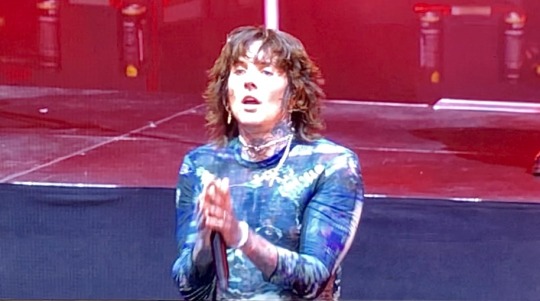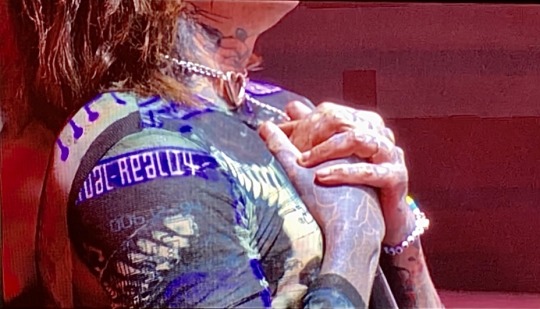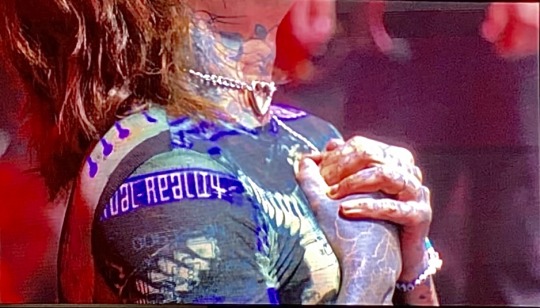#fall out boy clarkston
Text




critical grand theft autumn Patrick moment from last night ❤️🩹
#sir. sir I am in love with you.. hi 🫶🏻🫶🏻#that’s just a snippet of the whole thing btw I have the entire song plus some stuff at the beginning if anyone wants to see :]#I might post it later anyway#eve's recs#fall out boy clarkston#fall out boy#so much for tour dust#grand theft autumn#patrick stump
222 notes
·
View notes
Text
So Much For (Tour) Dust || Clarkston, MI 7/29 || Magic 8 Ball Intro // Don’t You Know Who I Think I Am?
#emo#yeemo#fall out boy#fob#so much for tour dust#so much for (tour) dust#so much for stardust#so much (for) stardust#magic 8 ball song#infinity on high#ioh#don’t you know who i think i am#detroit michigan#clarkston michigan#pine knob#pine knob music theater
24 notes
·
View notes
Text
I don’t even care what the fucking magic 8 ball song is at this point I’m blowing everyone up with my mind in fucking clarkston michigan. If you saw william beckett singing chicago is so two years ago literally die.
#WHAT THE FUCK#WHY IS HE THERE???????????#babygirl what are you doing#fob#fall out boy and william beckett count your fucking days#I need to DIE#THAT SHOULDVE BEEN ME#fuck clarkston all the homies hate clarkston
13 notes
·
View notes
Text


nothing is more important to me than that show istfg
7 notes
·
View notes
Text
so the Fall Out Boy show at Pine Knob was a certified Delight. We did not get Bang The Doldrums which would have made it perfect from my personal perspective (I would also have loved I Don't Care but I don't think they've done that one this tour?) but we did get a bunch of other ones I really like such as Phoenix and Headfirst Slide, and Don't You Know Who I Think I Am as the 8 ball song. I got an okay photo of the tour dust screen before the show...

...but all my photos from the show itself turned out terrible:



EXCEPT this one where the screen was showing the unsettling robot face thing from the side of the set. THAT photo turned out amazing 🙄

I made this shirt to wear and these bracelets to give away. I gave some away before the show and gave away the rest while I was charging my phone in the rest room afterwards, lmao.

Anyway 10/10 would Fall Out Boy again
6 notes
·
View notes
Text










photos from clarkston from fall out boy’s instagram
52 notes
·
View notes
Text
i remember at the fall out boy show in clarkston i was with my mom and she was hyping me up so much that when they finally came onstage and lftos started playing i was so excited i couldn’t even sing along well i was just standing there tonelessly shouting
13 notes
·
View notes
Text
so we (my friend and i) saw william beckett at the fall out boy show yesterday bc he sang during "chicago is so two years ago" (btw this was at the pine knob show in clarkston).
why is no one speaking about this . my friend started sobbing uncontrollably and for a second i was kinda like who is this blonde twink who just appeared onstage (bc i had only seen pics of him from the 2000s or in the sixteen candles mv so i didn't recognize him at first) but when i saw their reaction and i had a moment of clarity and was like shit that's william !!!!
btw i still haven't recovered soz for sounding insane but i'm stunned that nobody at the show seemed phased by seeing The william beckett except for us
#fall out boy#fob#fall out boy tour#so much for stardust#so much for (tour) dust#michigan#william beckett#decaydance
12 notes
·
View notes
Text










Fall Out Boy on Instagram, 30/07/2023.
✨ So Much (For) Clarkston ✨
📸 @elliottxingham
15 notes
·
View notes
Text
is anyone else on here going to the fall out boy concert on the 29th in clarkston, MI? I’ll be going alone and i want to make sure i know someone there.
1 note
·
View note
Photo










5 years ago, on July 13, 2016, the Hollywood Vampires realized their sixteenth concert (and the eleventh of the 2nd leg) on the “Raise the Dead Tour”. Now rocking the Soaring Eagle Casino & Resort, in Mount Pleasant, Michigan.
> This show marks:
* The eleventh show in the USA on this tour and the first time the Hollywood Vampires performed in the state of Michigan.
The Vampires made a second show 3 days later on July 16, at the DTE Energy Music Theatre, in Clarkston.
* The fourth time the Vampires played in a Casino Resort, and second time not inside the building.
The first time was on May 17, 2016 at the Turning Stone Resort Casino in Verona, New York, the second on July 8 at the Casino Rama Resort, in Orillia, Ontario, Canada and a third time at the Seneca Niagara Resort & Casino, in Niagara Falls, New York on July 9.
On this day, the Hollywood vampires was the third band to play at the “The Outdoor Summer Concert Series” at the Soaring Eagle Casino & Resort. Although the place has a smaller indoor venue, this one is specially for small concerts. The outdoor venue is located outside the casino resort in a large hill for 10,000 people. During the Hollywood Vampires the place was completely filled by fans.
The first outdoor show outside a casino, happened on the parking lot of the Seneca Niagara Resort & Casino, on July 9.
* The second show without Joe Perry.
After Joe got sick suffering from dehydration and exhaustion which led him to collapse during the second song on the show on July 10, and return to California to rest properly, the Vampires continued the tour without him.
Although Joe was not replaced by any other person, Tommy Henriksen worked hard on his guitar skills to assume as lead guitar and give a good show.
The Vampires kept paying homage to him, adding the “JP” sticker on their clothes, a photo on the backdrop video and just like the fans in the audience, sent best wishes to him during the songs.
* The first time the Hollywood Vampires had a band opening on this tour.
On this day, the rock band, Cheap Trick opened for the Hollywood Vampires and Johnny even watched the concert from the side of the stage with his bodyguard Malcolm Connolly.

* The second time the Hollywood Vampires had a guest on stage.
On that day, the lead singer and rhythm guitarist for the rock band “Cheap Trick”, Robin Zander (who opened for the Hollywood Vampires) joined on stage and with them sang The Beatles “Come Together”. The first guest on the 2016 Raise the Dead Tour was Ian Hunter on July 10 in Brooklyn, New York.
* The sixth time Johnny alter his tattoo.
When Johnny returned to the USA after the “Raise the Dead Tour” in Europe, he was updated about Ms. Heard’s hoax against him that she was doing while he was on tour. Unable to talk, being boycotted and still collecting evidences, Johnny protested covering Ms. Heard’s “SLIM” tattoo (which was changed to “SCUM” in June 2016) with stars drawn with black sharpie.
Johnny started on June 5 in Milwaukee, Wisconsin, repeated on June 7 in Aurora, Illinois, a third time on July 8 in Orillia, Ontario, Canada, a the fourth time on July 9 in Niagara Falls, New York and lastly on July 10, 2016 in Brooklyn, New York.

* The sixth time the setlist is changed and rearranged, and the third time the show is shortened.
On this day, The Beatles’ “Come Together” was the 6th song to be performed with Robin Zander, instead of the 10th.
Without Joe Perry, his cover of Fleetwood Mac’s “Stop Messin’ Around”, the 14th on the setlist, was not performed, and instead substituted by Motörhead’s “Ace of Spades” which is used the 16th song to be performed. Apart of this, the setlist remained the same from the previous day, as well closing the show with 20 songs, instead of 21.
> SETLIST [Raise the Dead Tour: July 13, 2016, in Mount Pleasant, Michigan.]
[INTRO] The Last Vampire [Hollywood Vampires]
1. Raise the Dead [Hollywood Vampires New Song]
2. I Got a Line on You [”Spirit” Cover]
3. Rebel Rebel [“David Bowie” Cover]
4. Suffragette City [“David Bowie” Cover]
5. Manic Depression [“Jimi Hendrix ” Cover]
6. Come Together [“The Beatles” Cover] - (Featuring Robin Zander from “Cheap Trick” on vocals)
7. Five to One/Break on Through [“The Doors” Cover]
8. As Bad As I Am [Hollywood Vampires New Song]
9. 20th Century Boy [”T. Rex” Cover]
10. Get it On [“T. Rex” Cover]
11. 7 and 7 Is [“Love” Cover]
12. Whole Lotta Love [“Led Zeppelin” Cover]
13. Dead Drunk Friends [Hollywood Vampires New Song]
Stop Messin’ Around [“Fleetwood Mac” Cover – Joe Perry on Vocals]
14. Ace of Spades [“Motörhead” Cover]
15. Pinball Wizard [”The Who” Cover]
16. My Generation [“The Who” Cover]
17. I'm Eighteen [“Alice Cooper” Cover]
18. Sweet Emotion [“Aerosmith” Cover]
19. Train Kept a Rollin' [“Tiny Bradshaw” Cover]
20. School's Out/ Another Brick in the Wall Pt. 2 [Mashup] [“Alice Cooper” & “ Pink Floyd” Cover]
#Johnny Depp#Alice Cooper#Joe Perry#Tommy Henriksen#Matt Sorum#Robert DeLeo#Bruce Witkin#Hollywood Vampires#Robin Zander#Cheap Trick#July 2016#Raise the Dead Tour#Mount Pleasant#Michigan#Soaring Eagle Casino & Resort#Show N° 16
19 notes
·
View notes
Text







Oliver Sykes during the (extended) bridge of Can You Feel My Heart
// Bring Me the Horizon’s opener performance for Fall Out Boy Clarkston, 07.29.2023
#….. I’d never seen this man before in my LIFE til that show and well. now I wish to see him again.#look at his hands??? goddd#with the. and the necklace. um. yyaeh#eve's recs#just watch the damn video okay#bring me the horizon#can you feel my heart#fall out boy clarkston#so much for tour dust#oliver sykes#oli sykes#bmth#fob#smftd#smfsd
149 notes
·
View notes
Photo



Wild times in K Woods
Please excuse the low quality on this set, they were taken with an old iphone. I wish I had taken my camera everywhere I went and that it would have always been socially acceptable to take pictures. It much easier to share a picture than to try to explain.
The night before I took the window shot, I woke up to what sounded like eire weeping and chants from the apartment below me. I tried to block it out. Fortunately, I can fall asleep in just about every scenario, so I slept through it. I got up the next morning and noticed that family had set up chairs in the parking lot projecting a eulogy slideshow on our building. Three hundred pairs of slippers in the hallway blocked the stairs to my apartment. My neighbor explained it was a Burmese funeral, but failed to mention that it would go on for the next three days. The next night I fell asleep to the sounds of foreign accents singing karaoke and electric guitar blasting from the parking lot. I really didn’t mind; it was all so interesting.
At least 200 people were there to grieve together. No matter what other obligations their friends and family had, they let it all go to be with each other for three days. I would imagine this effects ones ability to retain employment. Maybe they just used their sick days. Even so, I would have a hard time deciding to spend my sick day soaking in Georgia heat and grief. It shows their devotion to one another. It is such a contrast to American culture where people expect funerals to be brief and people to grieve in private. Losing a job for these families would be devastating on a different level than for the typical American family. Even facing greater risk these families were willing to be there for one another.
One day, I had to go to the housing office to talk to them about my mailbox. Mailboxes are a joke at Khristopher Woods. The boxes barely lock, but the real challenge is figuring out whose box is whose. The boxes either have nothing on them or multiple sets of numbers from previous owners. There is no clear system so mostly you just remember which one the landlord points to when you move in. I forgot.
Maybe the other families didn’t need a numerical system to know which was theirs, maybe it was less confusing that way for them. What I don’t understand is how the mailman puts up with it, and how the people of Khristopher Woods get their mail.
Anyways... I was in the waiting room at the housing office alone. At least I thought I was alone until a 2 year old Burmese boy popped up out of no where. He was short, chubby, and adorable. I quickly realized he had no sense of a personal bubble. He climbed up on the chair next to me and poked me. Did he? He just poked me.. That was weird. He proceeded to tug on my hair and pull on my cheeks. Ah uh. What are you doing? He speaks no english, he’s two years old, this is useless. He giggled and touched all over my arms and legs. I think I was in shock. His mom came in saw my bewildered expression with his fingers still pulling my cheek from my face. She immediately started apologizing. Withholding her laughter she said, “he does this to girls like you” pointing to my white skin, “so sorry.” I realize now I am one of the only white people that boy had ever seen. He was trying to see if I was real.
Just another day in the life of Clarkston, Georgia.
#refugee resettlement#cultural differences#access#clarkston#georgia#atlanta#photojournalism#photojournalist#iphone shots#knowyourneighbor
1 note
·
View note
Link
this article has been copied & pasted in its entirety in case there’s a paywall. however, please try to read the article from the link first so that the journalist & newspaper staff get their wages. thank you.
April 28, 2019, 3:11 AM CDT By Alex Berg
The first time JayCee Cooper walked out onto the platform at a women’s powerlifting competition, everything else fell away: her years-long internal struggle over her gender identity, her decision to leave men’s sports when she began transitioning, her doubts that she would ever feel safe if she returned to competitions.
When she stepped out in front of a hundred people in the gym in Fort Collins, Colorado, last September, all she focused on was the barbell, which she hoisted off the ground. And then she heard the cheers of the crowd: “Come on JayCee!” She had found not only a sport, but also a home.
“In a world that wants to take away our power and strength,” Cooper, 31, said recently by phone from her home in Minneapolis, “powerlifting is a way to gain that strength back and feel powerful and feel ownership of our own lives. It helps us find strength within ourselves and helps us find strength within our bodies.”
Cooper signed up for more competitions, but, to her astonishment, USA Powerlifting, the sport’s biggest federation, told her that she could not compete in the women’s division because of her gender identity.
In an email, USA Powerlifting said she was denied because she had a “direct competitive advantage” over the other women who were competing.
“It took me aback,” Cooper said. “I didn’t want to put myself into a situation where I obviously wasn’t welcome.”
Cooper’s story received national attention after she posted about it on Instagram in January. She drew support from fellow powerlifters and Rep. Ilhan Omar, D-Minn., who slammed the ban on transgender women competitors as “discriminatory” and “unscientific.”
It was just the latest in a growing number of battles over the place of transgender women athletes in competitive sports.
As transgender women have become more visible and sought to participate in women’s sports, athletic organizing bodies have grappled with how to respond, and critics of their inclusion have grown increasingly vocal, as well.
In March, tennis legend Martina Navratilova apologized for calling trans women “cheats” in a Sunday Times op-ed in which she wrote that “letting men compete as women simply if they change their name and take hormones is unfair.” Weeks later, marathoner Paula Radcliffe told BBC Sport that it would be “naive” not to institute rules. In an interview with Sky News in April, Radcliffe said that if trans people were permitted to compete without regulations, it would be “the death of women’s sport.”
For transgender people watching this issue play out, the debate — often based more in bias and assumptions than in science — is dehumanizing. Those who seek to exclude transgender women from sports sometimes imply that the athletes are adopting their identity to gain an edge in competition, a suggestion many find offensive.
“They don’t understand what it means to be a trans person,” Chris Mosier, a competitive runner and cycler and the first known transgender athlete to make a men’s U.S. national team, said.
“The folks who are improperly reporting on this are making it seem like cis men are pretending to be women to dominate sports,” he added, referring to people who are assigned male at birth and identify as men. “I can say that the amount of discrimination, harassment and challenges trans people face in their everyday lives would never be offset by glory.”
‘IT’S BEEN A ROLLER-COASTER’
Before becoming a powerlifter, Cooper lifted weights as part of her training for other sports. As a teenager growing up in Clarkston, Michigan, she was on the U.S. junior national curling team, competed in track and field in high school and rowed in college.
But she never felt fully comfortable on those all-boys teams.
“It’s been a roller-coaster,” Cooper said. “One of the reasons I stepped away from curling was that I wasn’t being my authentic self, and I was super depressed, and I needed some time away to figure out what that meant for me.”
Four years ago, she began hormone replacement therapy as part of her transition. She now identifies as transfeminine, which she sees as a more expansive identity than simply female.
Cooper first came across powerlifting in high school, but didn’t decide to compete until last year while recuperating from a broken ankle, and she was struck by the sport’s simplicity and supportive atmosphere. In powerlifting, athletes are divided into categories by sex, age and weight, and they compete in three types of lifts: squat, bench press and deadlift. Each movement is a test of static strength, force and focus.
“The barbell for me has been a very empowering way to be in my body, which is politicized every waking second, connect with it, and feel like I’m achieving something,” Cooper said.
“It’s a very almost spiritual feeling in the sense that I’m carrying all of this trauma with me and I’m literally focusing all of that into the barbell. In that moment, I get to control what’s going on.”
To lower her testosterone levels, Cooper takes spironolactone, a drug that is also used to treat high blood pressure and can mask steroid use.
USA Powerlifting, which follows rules set by the World Anti-Doping Agency, requires athletes to apply for an exemption to compete while taking the drug. The group has granted exemptions to powerlifters who have taken spironolactone to treat acne or polycystic ovary syndrome, Larry Maile, USA Powerlifting’s president, said.
As part of her medication exemption application, Cooper provided documentation that her testosterone levels have remained under the International Olympic Committee’s accepted limit for two years. (USA Powerlifting falls under the International Powerlifting Federation, which adopted the IOC’s guidelines that allow transgender women to compete in women’s divisions provided their testosterone is below 10 nmol/L for at least 12 months.)
But in December, Cooper’s exemption request was denied. She was told she could not compete in the women’s division of powerlifting because she had a “competitive advantage” as a transgender woman, according to an email exchange obtained by NBC News between Cooper and Dr. Kristopher Hunt, the chair of USA Powerlifting’s committee that reviews applications for medical exemptions.
"Male-to-female transgenders are not allowed to compete as females in our static strength sport as it is a direct competitive advantage,” Hunt said in one email to Cooper.
Pressed for clarification, he wrote a follow-up. “The fact that transgender male to female individuals having gone through male puberty confer an unfair competitive advantage over non-transgender females,” he said.
In a phone interview, Maile defended the decision and said the organization’s policy of barring transgender women — as well as transgender men who take testosterone — was not new, though it was not posted on USA Powerlifting’s website until this winter after Cooper applied for the exemption. Maile said that the IOC’s guidelines ultimately give organizations the discretion to make their own decisions about fair play. To reach the decision, he said USA Powerlifting researched the physical differences between men and women in terms of muscle density, connective tissue and frame shape.
“We’ve been referred to as bigoted and transphobic and a whole lot of less kind things, but it’s not an issue of that for us,” Maile said. “It’s an issue that we have to consider dispassionately and make our best judgment collectively about what the impact on fair play is for us, and that’s the basis on which we’ve proceeded.”
He added that powerlifting “is really unique, because we’re a high strength and low technique sport” — so the physiology of the competitors is particularly important.
Cooper doesn’t buy that argument, noting that women’s bodies come in all shapes and sizes, which may confer advantages for different sports.
“You look at a WNBA player, they’re pushing 6 feet versus someone doing gymnastics who’s 5 feet tall,” she said. “Their bodies are built completely differently. That’s what sports are about.”
‘THE SCIENCE IS IN ITS INFANCY’
The policies governing transgender athletes vary by sport.
The NCAA has policies similar to the International Olympic Committee and does not require athletes to undergo gender-confirming surgery, while USA Gymnastics does require it under some circumstances, according to research compiled by TransAthlete, a database of professional, recreational, college and K-12 sports’ policies on trans athletes.
Others aim to be more inclusive. USA Hockey, for example, offers options for nonbinary athletes who do not identify as male or female, as well as guidance for trans athletes.
While opponents of inclusion point to the “bigger, faster, stronger” argument as the basis of their fear that transgender women are taking over women’s sports, there are few examples of trans women who’ve excelled at a national or world level, according to Cyd Zeigler, co-founder of OutSports, an outlet that reports on LGBTQ athletes.
The scientific research on transgender athletes is in the early stages, and there is disagreement among experts about how to determine fair rules of competitions.
“There’s no simple or even complex biological test you can apply that tells you who’s a man and who’s a woman,” Roger Pielke Jr., director of the Sports Governance Center at the University of Colorado, said.
In the absence of such a test, testosterone levels are often used as a proxy to determine whether trans women are eligible to compete in women’s leagues. There is evidence that transgender women who are on hormone therapy have lower muscle mass and less aerobic ability than they did before, said Joanna Harper, a scientist who studies gender-diverse athletes and advises the International Olympic Committee. In a 2015 study she published on trans women who are distance runners, Harper, who is a trans woman and runner herself, found that after being on hormone therapy the women were running more than 10 percent slower.
But testosterone is an imperfect metric. Even among cisgender men and women, there is variance in the amount that is considered normal.
To deny Cooper “the right to compete based on ridiculous fear is completely unfounded,” Harper said.
‘TRANS LIFTERS BELONG HERE’
At the Minnesota State Championship in February — a USA Powerlifting meet where Cooper hoped to compete — almost a dozen athletes and 20 people in the audience protested her exclusion, according to Maxwell Poessnecker, a transmasculine-identified lifter from Saint Paul, Minnesota. Flanked by signs and wearing T-shirts that said, “I support trans lifters” and “trans lifters belong here,” the athletes stood on the lifting platform without competing to show their disapproval of the policy, Poessnecker said.
From little leagues to the Olympics, questions over transgender inclusion will continue to surface. Advocates who say concerns about “competitive fairness” are often rooted in gender stereotypes and scientific research is lacking believe policies should be as inclusive as possible.
“It’s hard to call anything model when it requires an individual to be tested and questioned,” said Breanna Diaz, a powerlifter and co-director of Pull for Pride, a charity deadlifting event that benefits homeless LGBTQ youth. If athletes “have a sincerely held gender identity, that should be sufficient,” she said.
Cooper, who co-directs Pull for Pride, hopes to use her experience with powerlifting as a way to drive the conversation about trans athletes.
On May 9, USA Powerlifting’s national governing body will meet to discuss its transgender inclusion policy.
“I really do love this sport,” Cooper said, “and it’s not fair to genetically eliminate an entire group of people.”
14 notes
·
View notes
Text
got lawn seats for fall oute boy in clarkston ✌🏻
19 notes
·
View notes
Text
Why don't I do the things I don't do?
October 3, 2021
Many times I've asked myself the more common, self-reflecting question, "Why do I do the things I do?"
However, this summer, Debbie and I visited Sturgis, Michigan, where some friends from her early childhood days in Bloomingdale, Ohio, were sharing a vacation cottage, and I overheard a woman ask one of the men in the group how his brother was doing.
I heard the man say of his sibling, "Well, he doesn't hunt. He doesn't fish. He isn't into guns or motorcycles. Basically, he leads a pretty boring life."
When I heard that I thought to myself: I don't do any of those things, either. What does that make me?
Plus, I don't golf, gamble, play cards or tinker under the hood--things that many of my friends and family members do. And despite living near Lake Michigan, I'm not into boating or water skiing. What is more, I now spend my winters in Florida, but before that I didn't snow ski, snowmobile or do ice fishing, either.
During the drive home from Sturgis, I confided to my wife that upon realizing that I don't enjoy a lot of things that other guys seem to enjoy, I began to fret about being a boring person.
She laughed and said, "Well, you know a heckuva lot about doo wop. You competed for almost 20 years in the Senior Olympics. And you collect pudding stones. Who does that kind of stuff? I think it's interesting that you don't do the things most other men do."
She's right, I guess. Unlike many of my friends, I've always been more interested in doo wop, soul, jazz, etc. than in rock. I ran in 100- and 200-meter sprint competitions until I was almost 70. And some people call me the "rock god," not because of music but because of my penchant for hunting down cool-looking boulders, particularly pudding stones (a jasper-quartz pebble conglomerate originating in Ontario and deposited in Michigan by the glaciers).
Actually, I've taken golf lessons three times during my life: through the Detroit Free Press golf school when I was 13, as a physical education class during my college years, and at a public golf course when we lived in Clarkston. Still, the game never captured me. It takes too much time, in my estimation. And you have to play a whole lot if you want to be reasonably good at it.
Also, I boated and fished some during my youth. In fact, my Dad had an 18-foot runabout with a 35-horse Johnson motor, and he was great about letting me take it out to the Detroit River with friends. And yet, the older I got, the more time I spent away from boating, I lost confidence in my ability to operate a boat on the water...especially bringing it into the dock.
I even went deer hunting once, but being hunkered down on a snowy log with a rifle in my arms, in the early hours of a late fall morning, wasn't fun for me. And getting trashed in a country bar during the afternoon and observing how many intoxicated hunters went back into the woods with their rifles before sundown, well, that wasn't my thing, either.
Truthfully, sometimes I wish I'd have taken up golf because my boys are into it and it would be fun to get out on the course with them, to interact and converse with them, on beautiful summer mornings. And had I been into fishing, I could have taken out my father-in-law, who was totally into it, and made memories together during the prime of his life.
I'll just have to remain content with the fact that I write these essays, something no one else I know does. That I read a half-dozen or so different newspapers (online), something few others do. That I train seriously with weights five days a week--there's only one other retiree I know who is as diligent at it as me. And that I love striking up conversations with strangers in bars, weirdos on the street and characters of any type--usually not hunters, golfers or people who play euchre.
Over the years I've dabbled in photography. Taken cooking classes. Sung harmony in a five-man group, as well as a couple of duets in trailer park shows. But it's true...I don't do many of the things that many other men do. As Sammy Davis said in 1968, "I've gotta be me, what else can I be but what I am?"
0 notes